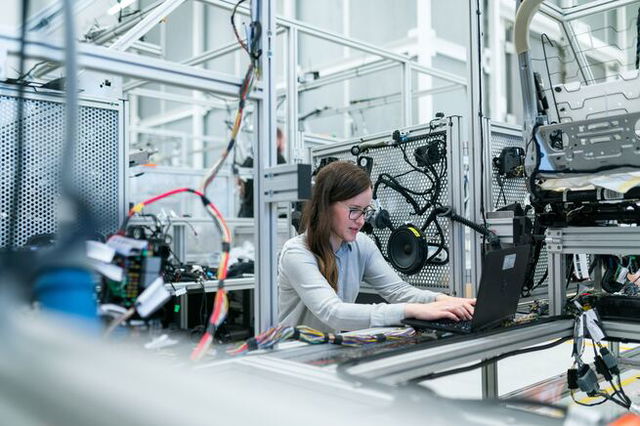- Calendar
- Calendar 2026
- June
- International Women in Engineering Day
International Women in Engineering Day
International Women In Engineering Day is commemorated every year on June 23rd.
The day is created by the Women's Engineering Society and supported by UNESCO with the intention to recognize women who work in the engineering sector and encourage more women to take up engineering.

History of The International Women In Engineering Day
The event was first observed in the UK by the Women's Engineering Society in 2014 to celebrate its 95th anniversary. In the UK it was called National Women in Engineering Day.
The event was a success with over 80 events taking place over the UK in universities and museums, including conferences, workshops, debates, engineering competitions, and webcasts. The day was also well publicized in national newspapers and trended on Twitter.
The main aim of the day was to highlight the low percentage of women in Engineering jobs, which, according to INWED material at the time, was approximately 6%.
National Women in Engineering Day began to grow and capture more international attention. The following year there were over 200 official events and whilst most of these were in the UK, organizations and speakers from America, Europe, and Asia also took part.
In London, participants successfully broke the Guinness World Record for the most number of people to perform a jumping high five at the same time. The event continued to grow in 2016 and 2017 introducing a theme for the year, the first one being 'Raising Profiles'. The day also gained the patronage of UNESCO and renamed itself International Women in Engineering Day.
The Theme
In recent years the event has grown in popularity and social media presence. However, many of the events have had to take place online due to COVID-19.
The theme of the day for 2023 is 'Make Safety Seen'.
Women Engineers Who Made a Mark in History
Ada Lovelace
Born on December 10, 1815, to English Romantic Poet Lord Byron, Ada Lovelace is widely considered the first computer programmer in the world. Her skills even impressed Charles Babbage, also known as 'the Father of Computing'. In fact, Lovelace's program was supposed to be run on his computing machine which would later turn out to be the first mechanical computer.
Bertha Lamme
Born on December 16, 1869, in Ohio, Bertha Lamme was the first woman who graduated from the Ohio State University in the field of Mechanical Engineering. In fact, she was the first woman who received a degree in Engineering in the United States.
Similar to her brother Benjamin, Bertha got a job at Westinghouse Electric Corporation and worked there for twelve years. She was the first woman engineer the organization had hired.
Edith Clarke
Born on February 10, 1883, in Maryland, Edith Clarke was the first woman who earned a degree in Electrical Engineering from the Massachusetts Institute of Technology (MIT). Although she was unable to find a job in this field at first due to limited opportunities for women, Clarke was appointed as an engineer at Central Station Engineering in the Department of General Electric.
Edith Clarke also received the Society of Women Engineer's Achievement Award in 1954.
Hedy Lamarr
Born on November 9, 1914, in Austria, Hedy Lamarr was a well-known actress in Hollywood from the 1930s to the 40s. However, many do not know that she is also a gifted mathematician and engineer who, along with her friend George Antheil, invented frequency hopping.
Frequency hopping was a significant invention that allowed a transmitter and receiver to change the frequency of a signal so that it is not intercepted by enemies. This type of communication system was later used by the US military to conduct various operations.
You might want to read about International Women's Day and some interesting facts about it.

Other Celebrations
-
Feb 11 TueInternational Day of Women and Girls in Science
-
Mar 08 Sat
-
Mar 11 TueCanadian Women Physicians Day
-
May 12 MonInternational Women in Mathematics Day
-
Oct 15 WedInternational Day of Rural Women
-
Nov 25 TueInternational Day for the Elimination of Violence Against Women

International Women in Engineering Day - Next years
Wednesday, 23 June 2027
Friday, 23 June 2028
Saturday, 23 June 2029










